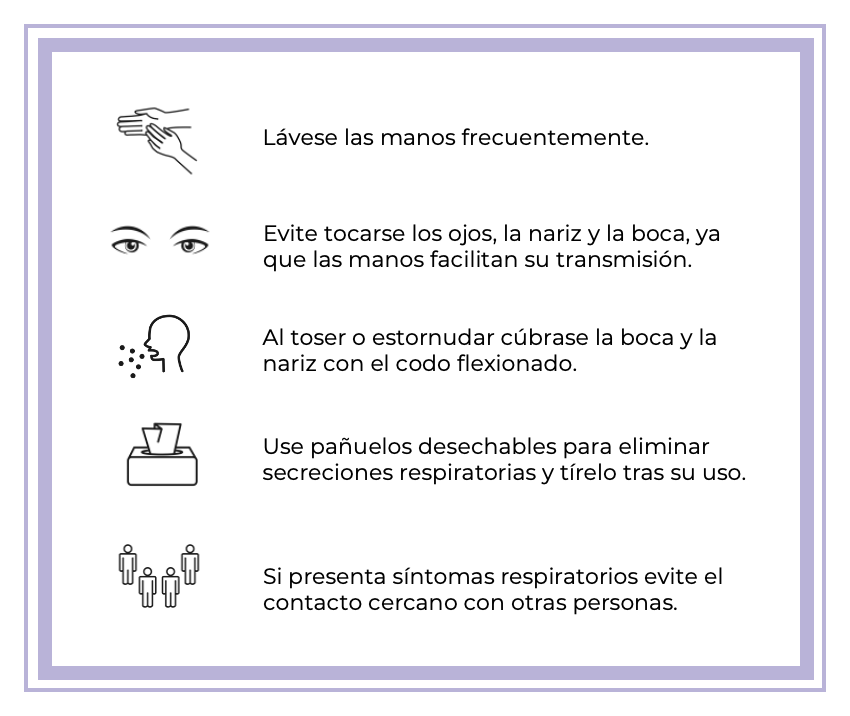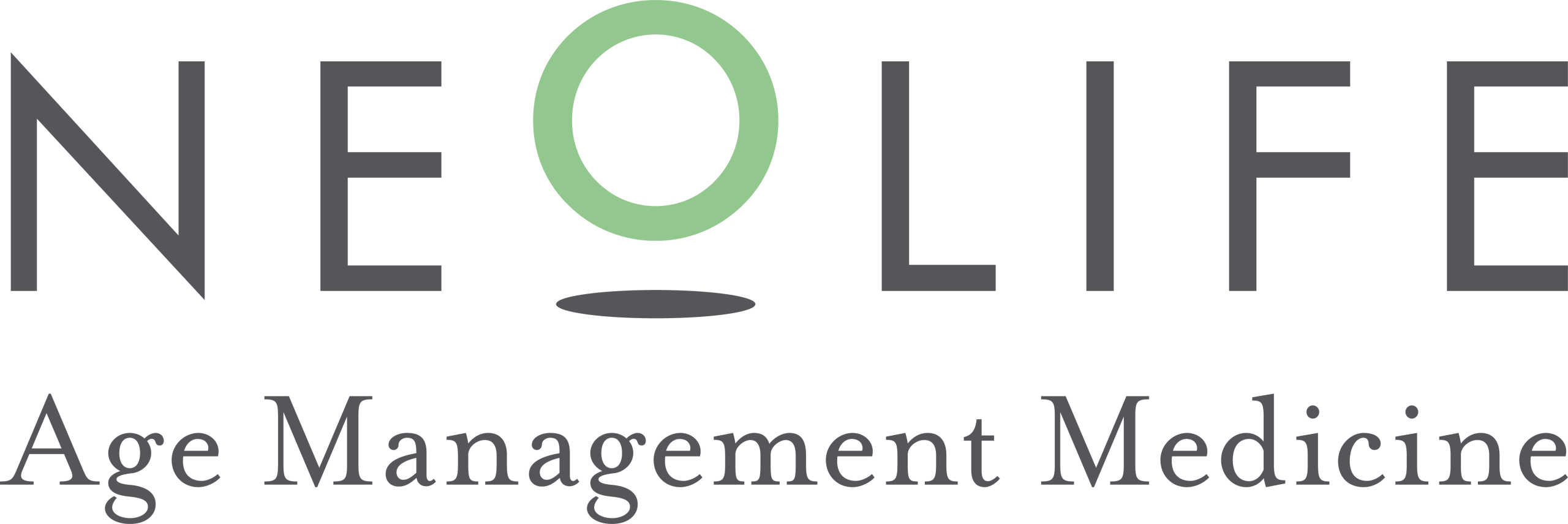The energy and nutrients we obtain through food play an important role in the development and preservation of the immune system, which is vital to combat this current situation.
The close relationship between nutrition and the immune system means that an imbalance may increase the risk of catching this disease. In this article, we’ll cover in detail the foods that should be included in an optimal diet for this situation, with a high content of vitamins A, B, C, D and folic acid, and in the case of minerals, iron, zinc, selenium, as well as in certain herbs, spices, and mushrooms.
Neolife Nutrition Team
Our defenses may be lowered from bad eating habits, which in turn leads to a higher likelihood of catching diseases
Malnutrition is a condition that decreases the body’s functional capacity and consequently exacerbates the weakness of the immune system, thus increasing morbidity and mortality. In these populations, where morphological and physiological changes predominate, it is important to follow an adequate, balanced, and healthy diet, which promotes a better immune response (1).
The Western diet, characterized by being high in unhealthy fats, flours, refined sugars, and salt, and low in dietary fiber, has been shown to contribute to the development of obesity and chronic diseases, such as diabetes, metabolic syndrome, cancer, and cardiovascular or neurodegenerative diseases (2). This type of disease is characterized by chronic inflammation that has a direct impact on the immune system, compromising its optimal functionality. Food as a whole and the nutrients that it provides therefore play an important role in the development and maintenance of the immune system.
The immune system is complex and the elements that integrate it participate in numerous functions in a coordinated way with other systems of the body. In the protection against foreign agents (such as the coronavirus), a first line of defense is the physical and chemical barriers, such as the skin and mucous membranes (nasal, intestinal, etc.), their secretions (the pH of the stomach’s gastric acid, sweat), and the protective indigenous microbiota. Once pathogens cross this first barrier, the immune system activates certain defense mechanisms. Immune system cells are strongly influenced by the balance of antioxidant substances, so that a high proportion of antioxidant agents, supplied by food, play a key role in the body’s defenses (3,4).
In order to combat COVID-19, one of the keys is to follow a varied, healthy, and balanced diet with a suitable nutrient intake: low in saturated fats, simple sugars, and salt, and high in monounsaturated fatty acids, complex carbohydrates, and dietary fiber. It is worth mentioning recent research conducted in 2018 and published in the scientific journal Cell. The study showed that dietary fiber and short-chain fatty acids protect against severe influenza infection by reducing tissue damage and increasing antiviral immunity (5).

Our Mediterranean diet pattern stands out for the type of fat that characterizes it (olive oil, fish, and nuts), the proportions in the main nutrients (cereals and vegetables as the main dishes and meats or similar as side dishes), and its richness of micronutrients, originating from the use of fresh, local, seasonal vegetable products, as well as aromatic herbs and seasonings. All this gives it a strong antioxidant load and beneficial substances of plant origin that have been shown to enhance and improve immune response (5,9).
The emergence of new diseases, as well as bacteria and viruses, like the novel COVID-19, are situations for which we must be prepared, both at the national health system and at the individual level. Therefore, we must have a good diet, because this will boost the immune system and, consequently, protect our health by preventing diseases.
We recommend including in your diet foods with a high content of vitamins A, B, C, D and folic acid, and in the case of minerals, iron, zinc, selenium, as well as in certain herbs, spices, and mushrooms.
Below are different foods that stimulate our immune system and protect us from the novel coronavirus and other respiratory viruses (3,4,5,7,8,9,10,11):
- Kiwi, mango, pineapple, oranges, persimmon, strawberries, tomato, tangerines, vegetables from the cabbage family, as well as fruits and vegetables in general, are foods rich in vitamin C, which boosts the immune system.
- Extra virgin olive oil, green leafy vegetables, nuts, and whole grain cereals are rich in vitamin E, which helps increase immune response.
- Dairy products, eggs, liver, colorful vegetables, and some fruits, like cherries, strawberries, apricots, and melon, are rich in vitamin A, which plays an essential role in infections.
- Regular consumption of fermented dairy such as yogurt or kefir helps increase your immune defenses. Several studies show that those who eat these foods on a regular basis have a healthier immune system thanks to vitamin D. Moreover, probiotics are living microorganisms present in these foods, which have proven to have beneficial actions on the immune system.
- B vitamins are present in most plant and animal-based foods. Folic acid is found mainly in green leafy vegetables, legumes, fruits, liver, and enriched cereals. Vitamin B12 is only present in animal-based food sources, in seafood, meat, fish, eggs, and dairy products. Immune system alterations associated with a deficit in this group of vitamins have been reported because it decreases antibody production.
- Iron deficiency (common in women and older adults) decreases immune response. Iron is present in liver, meats, fish, egg yolk and, to a lesser extent, in legumes, so it is wise to include these food groups in our diet.
- A lack of minerals like zinc and selenium affects our immunity. Therefore, it is advisable to regularly consume foods like meats, fish, liver, nuts, legumes, eggs, dairy, fruits, and vegetables, which are rich in these minerals.
- It is worth noting that mushrooms have very interesting properties. Shiitake and reishi mushrooms have been shown to be the most involved in immunomodulation, so it is important to include them in our diet.
- Green tea contains catechins, which are antioxidants that help protect cells from damage caused by free radicals, strengthening the immune system.
- Different herbs and spices, such as garlic, turmeric, and ginger provide compounds that are involved in boosting the immune system and lowering inflammation.
In our blog, you will find other articles related to COVID-19, with recommendations for how to protect ourselves, through hygiene, supplementation, and hormone replacement therapy.
Additionally, we’d like to take advantage of this article to reiterate the different recommendations on how to protect ourselves from the novel coronavirus that we’ve already mentioned in the article “Coronavirus Recommendations from Neolife“.

In addition to these general recommendations, we’d like to add, in reference to cooking and food preparation, the following:
- When you return home from your grocery shopping, wash and disinfect the packages and wrappers and then wash your hands.
- Wash your hands before beginning food preparation and often while handling them.
- Wash and disinfect surfaces and utensils that you have used after food preparation.
- Protect food and food preparation areas from insects, rodents, and animals (dogs, cats, etc.).
In this period, we recommend that you resort to specific nutritional supplements, while progressively improving nutritional habits. The blog post titled “COVID-19: The Immune System, Supplements, and Bioidentical Hormone Replacement Therapy” explains which supplements have a more direct effect when it comes to strengthening the immune system. At Neolife, all of our patients know that we offer a wide range of nutritional supplements that provide us with the necessary nutrients to boost our defenses, such as NeoFlora Probio Balance (probiotics), NeoDefense Plus (rich in antioxidants and vitamin C), NeoVitaminD3 (vitamin D), as well as the Multivitamin and Multimineral. All of them have been shown to be effective in stimulating and improving the immune system.
Hormone Replacement Therapy is also important, with two hormones that provide an additional boost to our immune system: high doses of melatonin and DHEA. More information may be found in the article “COVID-19: The Immune System, Supplements, and Bioidentical Hormone Replacement Therapy“.
BIBLIOGRAPHY
(1) Liliana P. Rodota and María Eugenia Castro. “Nutrición clínica y dietoterapia” [Clinical nutrition and diet therapy]. Editorial Médica Panamericana, 1ª Edition, 2012.
(2) De Luis Román, D.A. Bellido Guerrero, D. García Luna, P.P. Olivera Fuster, G. (2017). “Dietoterapia, nutrición clínica y metabolismo” [Diet therapy, clinical nutrition, and metabolism]. Third edition. Sociedad Española de Endocrinología y Nutrición. Grupo Aula Médica, S.L. Madrid, Spain.
(3) Nova E. et al. (2006). “La estrecha relación entre la nutrición y el sistema inmunitario” [The close relationship between nutrition and the immune system]. Sociedad Española de Oncología Médica.
(4) Segurola, G.H. et al. (2016). “Nutrientes e inmunidad” [Nutrients and immunity]. Nutrición Clínica en Medicina. Vol. 10(1):1-19.
URL: https://www.aulamedica.es/nutricionclinicamedicina/pdf/5034.pdf
(5) Trompette, A. et al. (2018). “Dietary fiber confers protection against flu by shaping Ly6c- patrolling monocyte hematopoiesis and CD8+ T cell metabolism”. Immunity. Vol. 48(5):992-1005.e8.
URL: https://www.ncbi.nlm.nih.gov/pubmed/29768180
(6) Fundación Dieta Mediterránea. (2010). “La pirámide de la Dieta Mediterránea: un estilo de vida actual” [The Mediterranean diet pyramid: a contemporary lifestyle].
URL: https://dietamediterranea.com/nutricion-saludable-ejercicio-fisico/
(7) Vilaplana I Batalla, M. (2010). “Nutrición y sistema inmunitario: una relación muy estrecha” [Nutrition and the immune system: a very close relationship]. Ámbito farmacéutico. Vol.29 (6):75-81.
(8) Vilaplana I Batalla, M. (2015). “Nutrición y sistema inmunitario” [Nutrition and the immune system]. Farmacia Profesional. Vol. 29(6).
(9) Wasser SP. (2002). “Medicinal mushrooms as a source of antitumor and immunomodulating polysaccharides”. Appl Microbiol Biotechnol. Vol. 60(3):258-74.
URL: https://www.ncbi.nlm.nih.gov/pubmed/12436306
(10) Chacko M., S. et al. (2010). “Beneficial effects of green tea: a literature review”. Chin Med. Vol.5:13.
URL: https://www.ncbi.nlm.nih.gov/pmc/articles/PMC2855614/
(11) Bose, S et al. (2015). “Curcumin and tumor immune-editing: resurrecting the immune system”. Cell Div.
URL: https://www.ncbi.nlm.nih.gov/pmc/articles/PMC4603973/
